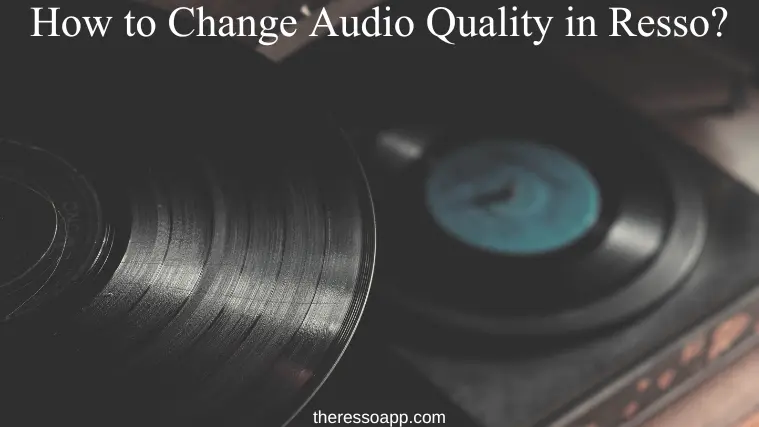How Music Affects Our Life? The Transformative Power of Sound

Have you ever been so lost in your thoughts? Do you need help concentrating or just not feel motivated? Many of us face these issues daily, looking for something to cheer us up.
Imagine finding comfort in a melody that speaks to your feelings or how a few songs may make a hard day better. Music is more than entertainment. It is a tool for comfort in happy and sad times.
This article will show you how music affects our life. We will look at the many ways that music affects us from how it affects our emotions and physical health to how it improves memory and social interactions. Let’s read further to find the transformative power of sound!
How Music Affects Our Life as Emotionally
Sometimes words simply cannot convey what has to be expressed, but music can. A happy tune may boost your spirits during a bad day. Conversely, a sad tune can assist you relax in difficult situations. The human brain’s reward system responds to music by releasing dopamine, the feel-good chemical that strengthens emotional bonds. Different elements of music, such as beat, melody, or lyrics can cause us to feel different emotions, including joy, despair, and inspiration.
However, the music goes beyond temporary emotions. Over time, it can also aid in emotion management. For example, listening to relaxing music on a daily basis might help you feel less stressed and anxious and encourage a more relaxed mindset. For this reason, music therapy is frequently utilized as a nonverbal means of communicating complicated feelings to assist people in coping with emotional difficulties.
How Music Affects Our Life as Physically
Music significantly affects our physical health and emotions. Have you ever noticed how some tunes can slow down your breathing or cause your pulse rate to increase? Music has a physical impact on our bodies in addition to mental ones. According to studies, listening to music can improve immunity, lower blood pressure, and even slow heart rate.
For instance, patients say that listening to classical music, which has a relaxing effect, helps them sleep before surgery or during their recuperation. However, research has shown that upbeat music improves physical performance, so it is a crucial component of exercise routines. The correct music can really assist, whether you are trying to relax after a long day or find the desire to exercise.
How Music Affects Our Life as Mentally
Not only can music lift our spirits and enhance our general well-being, but it also facilitates clearer thinking. It has been shown that music especially instrumental or classical music, improves concentration and focus. The “Mozart effect” theory holds that classical music enhances brain activity, particularly when one is engaged in activities involving spatial-temporal cognition.
Music helps with memory in addition to focus. Songs often act as potent memory causes, so listening to a song from your early years may suddenly cause you to remember something from your past. Because of the close relationship between music and memory, people with dementia and Alzheimer’s disease can frequently retain their cognitive abilities and recollect memories with the use of music therapy.

In addition to improving focus, music can also aid memory. Songs often act as powerful triggers for recalling past experiences, which is why you might suddenly remember a childhood memory when you hear a song from that time. This connection between music and memory is so strong that music therapy is often used to help individuals with Alzheimer’s disease and dementia recall memories and maintain cognitive function.
How Music Affects Our Life as Socially
Music is an effective social instrument. It can unite people and create connections across cultural and linguistic divides. When you sing along to a song with friends or attend a concert, you are fostering a sense of community and connection through your shared musical experiences.
Music is an important part of cultural identity even outside of social events. Sharing music may strengthen cultural ties because different musical genres frequently connect with particular cultures. Music acts as a bridge in multicultural society, fostering understanding and appreciation of one another’s cultures among individuals from disparate backgrounds.
How Music Affects Our Life Personally
There is a possibility for personal improvement with music due to its diverse variety of effects. Music has the power to positively impact your life, whether you want to raise your mood, increase your level of focus, or build relationships. Create customized playlists according to your tastes,, such as a joyful mix for exercising, a relaxing song for relaxing, or a sentimental mix for recollections.
Moreover, paying attention to music can enhance its effect. Give the words, the instruments, and the feelings they arouse careful attention rather than merely having the music play in the background. This technique can take music from a merely entertaining medium to a life-changing one.
Conclusion
Music influences us in social, cognitive, physical, and emotional domains. It can encourage us when we are sad. Understanding and using music’s power can enhance our lives and increase our overall health. Therefore, keep in mind that music is more than simply sound. It is a tool for leading a better life, whether you use it for relaxation, concentration, or social interaction.
FAQs
What affects does music have on emotions?
Music can cause strong emotional responses because of its relationship to the brain’s reward system. Depending on the tempo, melody, and lyrics, we may feel joyful, depressed, energetic, or nostalgic.
Is music listening beneficial to one’s physical well-being?
It is true that music helps reduce stress, lower blood pressure, and strengthen immunity. While calming music may help you relax, energetic music may help you work out better.
How does music improve one’s ability to think?
Focus, concentration, and memory are all enhanced by listening to music particularly instrumental or classical music. The brain regions involved in learning and memory retention are activated by music.
How can listening to music ease anxiety and stress?
Relaxing music can induce a calmer state of mind by lowering respiration and heart rate. Because music therapy offers a calming, nonverbal means of emotional release, it often relieves stress and anxiety.
How can I grow personally through music?
You can make playlists for specific purposes like motivation, relaxation, or focus. You can enhance the benefits of music by listening to it mindfully, which will enable you to interact more fully with your feelings and ideas.






